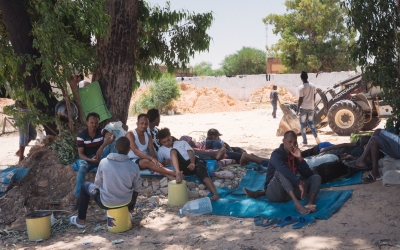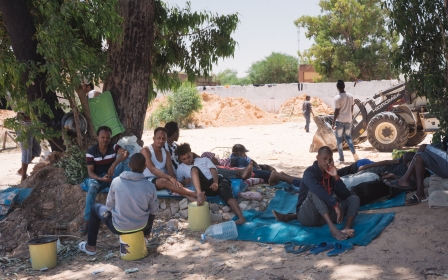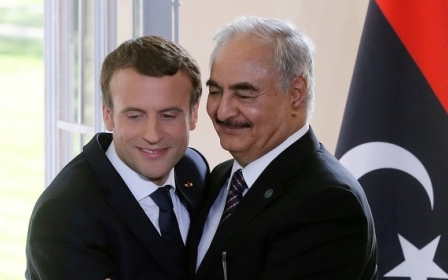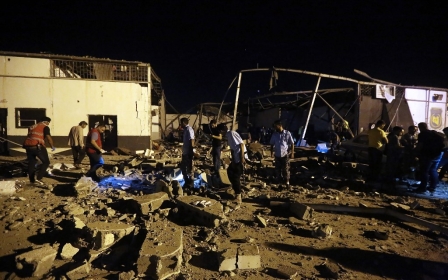Red Cross chief calls out EU over deaths at Libya migrant detention centre
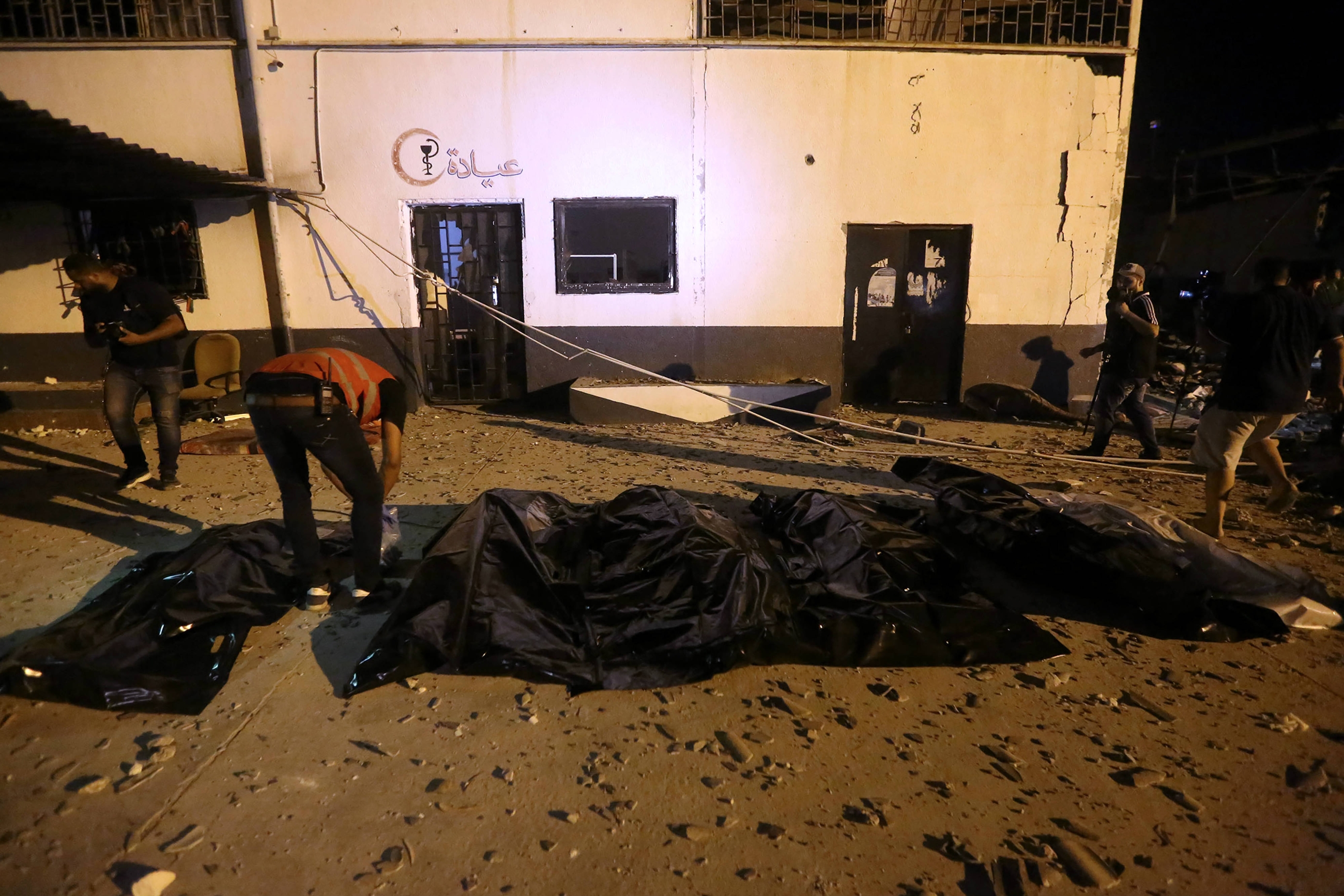
European Union policies led to the deaths of more than 50 people in an air strike on a migrant detention centre in Libya this month, the president of the International Federation of Red Cross and Red Crescent Societies has said.
Speaking to reporters in New York on Tuesday, Francesco Rocca said the EU has put more effort into arms and oil deals than in pushing for the release of people held in the centres.
That includes the scores of people killed at the Tajura detention centre, located in a suburb of Libya's capital Tripoli, on 3 July.
"I think it's very clear who's responsible for their deaths. It's very easy to blame only the Libyan authorities, which of course are treating without dignity human beings," Rocca said.
"But then this is also the result of EU policy for five or six years now, this lack of action or inaction, and only action for oil, for gas, for trade, and not to safeguard the dignity of human beings."
New MEE newsletter: Jerusalem Dispatch
Sign up to get the latest insights and analysis on Israel-Palestine, alongside Turkey Unpacked and other MEE newsletters
The air strike on the Tajura facility killed dozens of refugees and migrants while injuring some 130 others. The United Nations says it was a possible war crime, but no probe has yet revealed who was responsible.
Despite calls from the UN to empty the compound and other migrant detention centres on the frontlines of Libya's civil war, some 200 migrants and refugees were returned to Tajura as of Tuesday, the Associated Press reported.
The EU has repeatedly faced criticism for backing a scheme that sees Libya's coast guard intercepting Italy-bound boats and locking up the mainly African refugees and migrants on board.
France and Italy are big investors in Libya's oil fields, and Paris was embarrassed in mid-July when some of its missiles were discovered at a Libyan base seized from the forces of renegade Libyan general Khalifa Haftar.
The French government has since said those weapons had been purchased from the US and were not intended for sale or purchase by any party in Libya.
On Tuesday, Rocca criticised European countries not reaching a deal with the Libyan authorities on the migrants and refugees.
"No steps forward, while a lot of steps forward were made in oil or gas or in the trade of arms," said the Italian career humanitarian.
Tajura hit amid Haftar's advance
The Tajura centre was hit as forces loyal to Haftar intensified their efforts to wrest control of Tripoli from forces aligned with the country's internationally recognised Government of National Accord (GNA), which is based in the capital.
According to Rocca, EU members should base their cooperation with Tripoli or Haftar's forces based on which better promotes the "very basic rights of human beings".
"I'm exhausted of repeating always the same thing … and we only have increased the suffering and loss of life with no action, only this ping pong between different parts of politics in Europe," Rocca said.
'We only have increased the suffering and loss of life with no action, only this ping pong between different parts of politics in Europe'
- Francesco Rocca, International Federation of Red Cross and Red Crescent Societies
The EU has spent hundreds of millions of Euros in Libya, both equipping and training the Libyan coast guard and in efforts to improve the shabby conditions at detention centres, where beatings, torture and forced labour are rife.
Human Rights Watch and other rights groups have also accused the EU of contributing to the abuse of migrants in Libya.
In a statement, an EU spokesperson told Middle East Eye that the 28-nation bloc supported Libya's coast guard in a bid to "end to the cruel and inhumane business" of people trafficking on the Mediterranean Sea.
"We have also pushed Libyan authorities to put in place mechanisms improving the treatment of the migrants," said the spokesperson, adding that the EU has backed schemes to repatriate tens of thousands of migrants and resettle refugees in third countries.
Haftar's Libyan National Army (LNA) launched the offensive on Tripoli in early April, which quickly ground to a halt.
The fighting has left more than 1,000 dead, including more than 100 civilians, according to the UN's World Health Organization.
Middle East Eye delivers independent and unrivalled coverage and analysis of the Middle East, North Africa and beyond. To learn more about republishing this content and the associated fees, please fill out this form. More about MEE can be found here.


